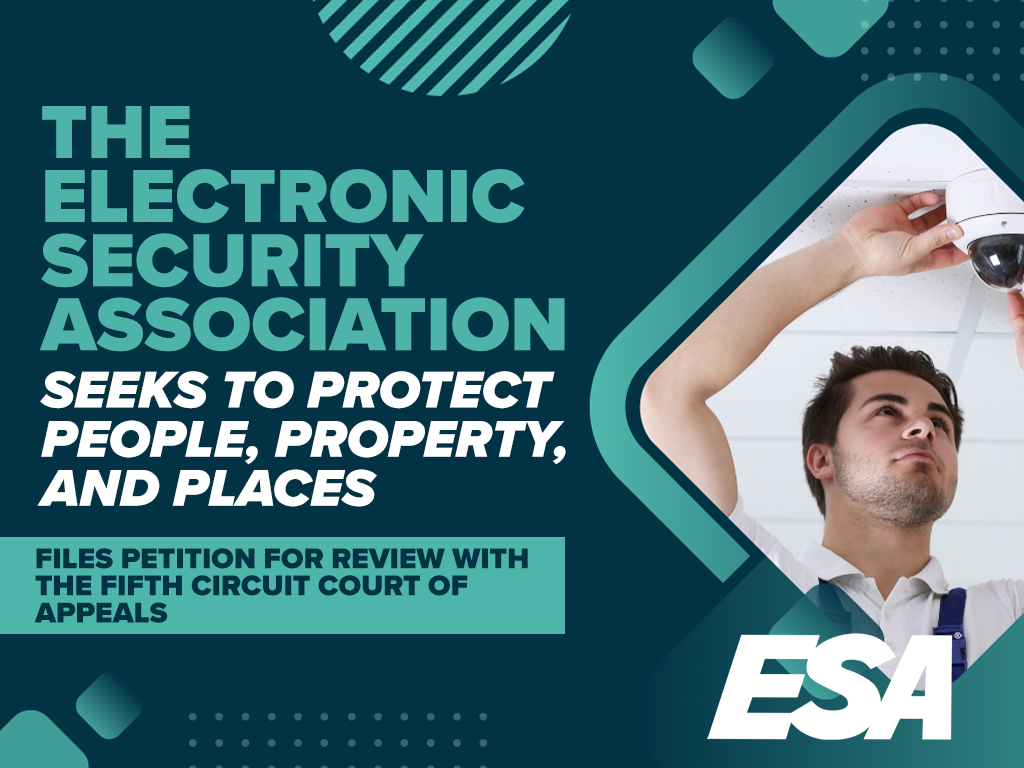ESA Seeks to Protect People, Property, and Places: Files petition for review with the Fifth Circuit Court of Appeals

On October 22nd, 2024, the Electronic Security Association INC (ESA) filed a petition for review with the United States Court of Appeals for the Fifth Circuit.
In response to the FTC’s rule regarding “Negative Option” ESA’s newly elected Chairman, Kevin Stone, made the following comment:
“The FTC’s click-to-cancel rule imposes unnecessary and unlawful burdens on America’s electronic security and life safety companies. Auto-renewing subscriptions give residential and commercial customers peace of mind in knowing that their security and life safety services will continue uninterrupted until customers choose to cancel the service. The click-to-cancel rule makes auto-renewing subscriptions more complicated and expensive, raises concerns of liability, and it will lead to more interrupted service and higher prices for customers. We are proud to go to bat on behalf of our members and the customers that rely on our integral services. We are confident that the courts will set aside the FTC’s click-to-cancel rule.”
This effort is a continuation following the submission of comments to the FTC made by ESA and industry allies. In those comments the industry explained that it is largely based on a month-to-month contract renewal model that has worked well for decades. Consumers of security systems know every day they have security as they interact with it every time a door is open and home or in the office.
Jake Braunger, ESA’s Vice President of Advocacy and Public Affairs adds the following:
“We are not a jelly-of-the-month club, or some exotic gym membership hoping to trick consumers and lock them in for a long contract. If a mistake is made in canceling those contracts through a click-to-cancel method everything is fine. If a mistake is made and someone doesn’t know their security and life safety contract was cancelled there could be destruction of property, or even loss of life.”
Consumers change contact information and payment information quite regularly. They expect their security and life safety systems to continue to serve as a deterrent. If the industry was forced to simply shut off that deterrent with no notice because of click-to-cancel rule the consumer would be in an incredibly dangerous position.
In response to a recent comment from extreme activists that ESA was “venue shopping” by filling in the 5th circuit Braunger responded, “That’s absurd, we are based in Dallas, Texas so we are filling in our home court.”
Established in 1948, ESA is the largest trade association in the United States representing the electronic security and life safety industry. Member companies install, integrate and monitor intrusion and fire detection, video surveillance and electronic access control systems for commercial, residential, industrial and governmental clients. ESA provides technical and management training, government advocacy and delivers information, advice, tools, and services that members use to grow their businesses and prosper.
Together, ESA member companies employ more than 500,000 industry professionals and serve more than 34 million residential and commercial clients.




